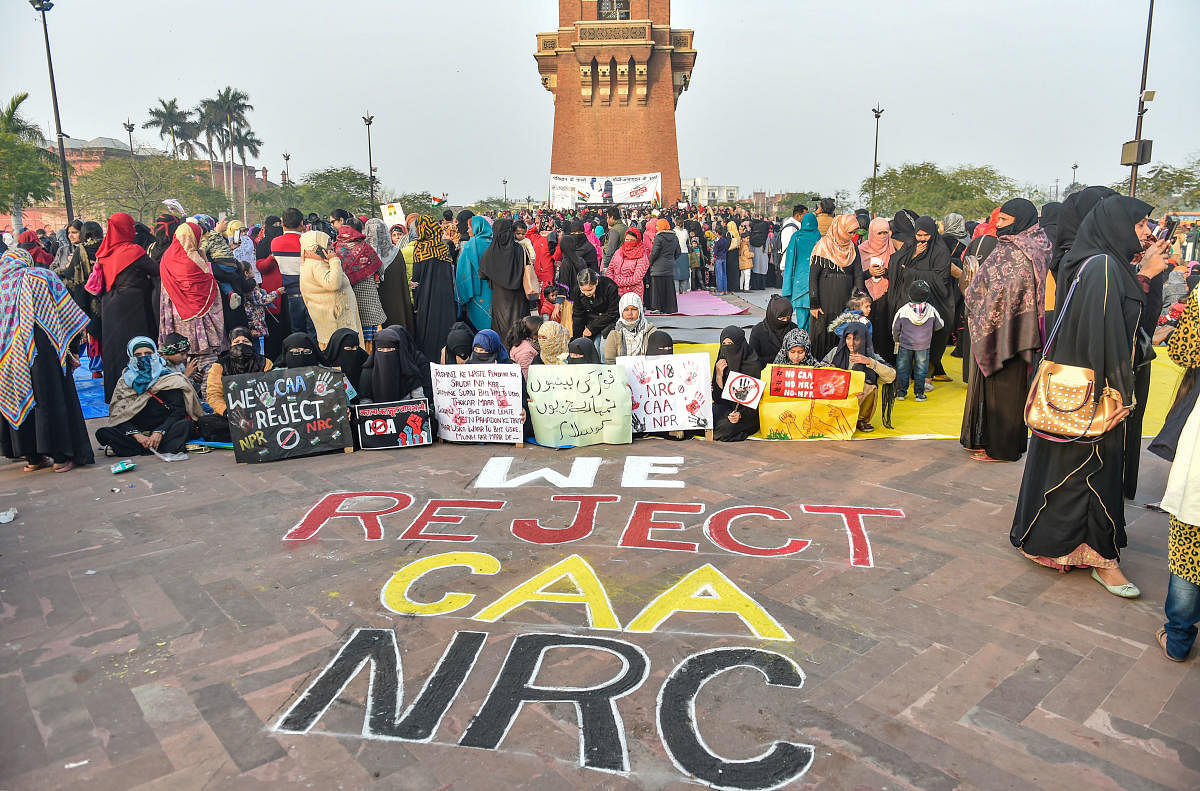
With about a dozen states opposing implementation of the Citizenship Amendment Act (CAA) and National Population Register (NPR), let alone the National Register of Citizens, the time has come to inject life into the dormant Inter-State Council to resolve all conflicts between the Centre and states amicably, instead of allowing a confrontation to brew that could damage the federal structure.
Though Article 263 of the Constitution had provided for such a mechanism, it was only in 1990 that a permanent council was set up through a Presidential order, following the Sarkaria Commission report on Centre-state relations. The commission observed that there was a pervasive trend towards greater centralisation over the years and narrow personal interests were given priority over the national interest. While recommending a consultative process on all matters under the Concurrent List of the Constitution, the commission had opined that such collective decisions would reduce friction between the Centre and states.
The council comprises the prime minister as chairman, chief ministers of states and union territories (UT), administrators of UTs without a legislature, governors of states under President’s rule and six Union cabinet ministers. However, the council has remained largely inoperative, having met only six times in the past three decades. The last meeting was held in November 2017 under the chairmanship of Prime Minister Narendra Modi. The council also has a standing committee headed by the Union home minister.
A one-size-fits-all approach cannot be applied to a country like India, given its vastness and diversity, as a particular decision taken by the Centre may be favourable to one state while having the opposite effect on another. A classic case is that of the beef ban. While the Centre banned cow-slaughter, BJP leaders in Kerala and Goa were actually promising voters that they would ensure supply of good quality beef.
Now, the Kerala government has approached the Supreme Court against the CAA, invoking Article 131 which gives the apex court original jurisdiction in any dispute between the Centre and state or between states. The Punjab, Rajasthan and West Bengal Assemblies have passed resolutions opposing the CAA. Several other states are expected to follow suit.
There have been many flash points in Centre-state relations over the years, including the reference to the 15th Finance Commission to adopt population as the base for devolution of funds to states and to do so on the basis of the 2011 Census. This led to protests from Southern chief ministers who accused the Centre of disincentivising progressive states that had reigned in population growth. DMK leader MK Stalin had then pointed out that such a reference, without consulting the states, not only contradicts the principles of federalism but would create a bias in favour of some states at the expense of others.
When the Centre unilaterally permitted import of pepper from Vietnam through Sri Lanka under the South Asia Free Trade Agreement, growers in Karnataka and Kerala came under great distress due to a crash in prices. When the Centre amended the Motor Vehicles Act and increased fines for traffic violations exorbitantly, several states slashed the penalties bowing to popular pressure. Such situations would not have arisen had the states been taken into confidence.
Hence, it is important for the Inter-State Council to meet at least twice a year, to adopt harmonious decisions on all matters that impact the states.
The Rajya Sabha, being the Council of States, could have been the appropriate forum to address these issues. However, the Upper House lost its character as the Council of States after the Parliament amended the Representation of People Act in 2003 by removing the domicile clause under which only a resident of a state could have represented it in the Rajya Sabha. Though eminent jurists like Fali Nariman had argued that this was an affront to the basic structure of federalism, the Supreme Court refused to heed their argument. This makes the Inter-State Council all the more relevant.
The founding fathers of the Constitution envisaged a strong Centre as India was then a fledgling country and a nascent democracy which had emerged from the amalgamation of over 560 princely states. Over 70 years have passed since then, and the time could not be better to transition to cooperative federalism.
On the eve of the 2018 Assembly elections, then Karnataka chief minister Siddaramaiah had in a social media post called for a standing mechanism, on the lines of the Goods and Services Tax (GST) Council, to ensure that states had a better say in matters concerning their affairs. “The economic policy that affects India’s commerce with the rest of the world impacts the states, too. Yet, the states have no role in shaping the economic policy. For India to grow stronger, her states need to grow and prosper. We are today in a position to set the states free to grow as per their capacity, without being nervous about any imagined threat from assertion of their identity.”
The distrust between the Centre and states has never been more pronounced than now, with several governments locking horns with the Modi government over the CAA-NPR-NRC issue, which could lead to a constitutional crisis. As such a situation is unprecedented, the constitutional consequences that will follow out of the wilful disobedience of a central legislation are unclear. It remains to be seen if the Centre will dismiss the state governments concerned, leading to an emergency-like situation or set up its own mechanism to conduct the exercise as envisaged in the CAA.
However, a confrontationist approach between the Centre and the states does not bode well for the country. Only a continuous dialogue based on mutual respect will foster cooperative federalism. And the first step in this direction would be to activate the Inter-State Council without further delay.
(The writer is a political commentator based in Bengaluru)